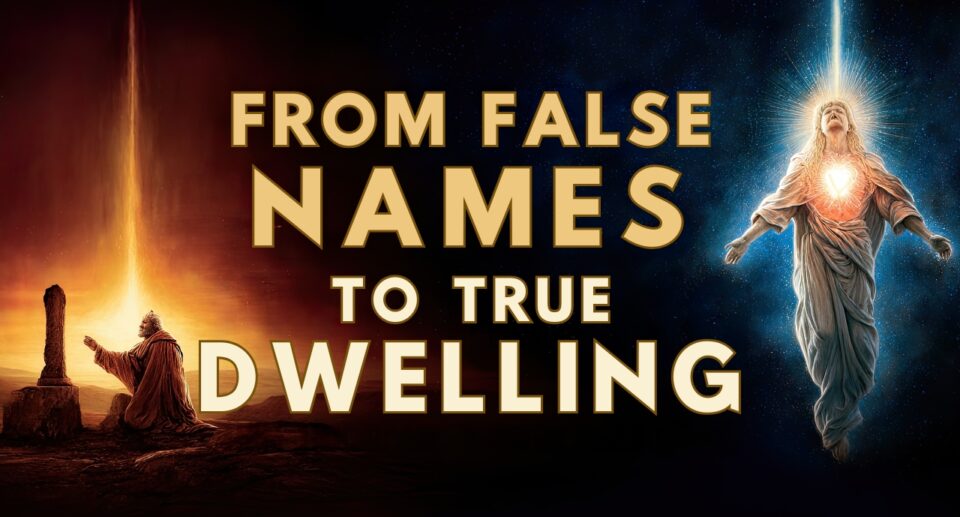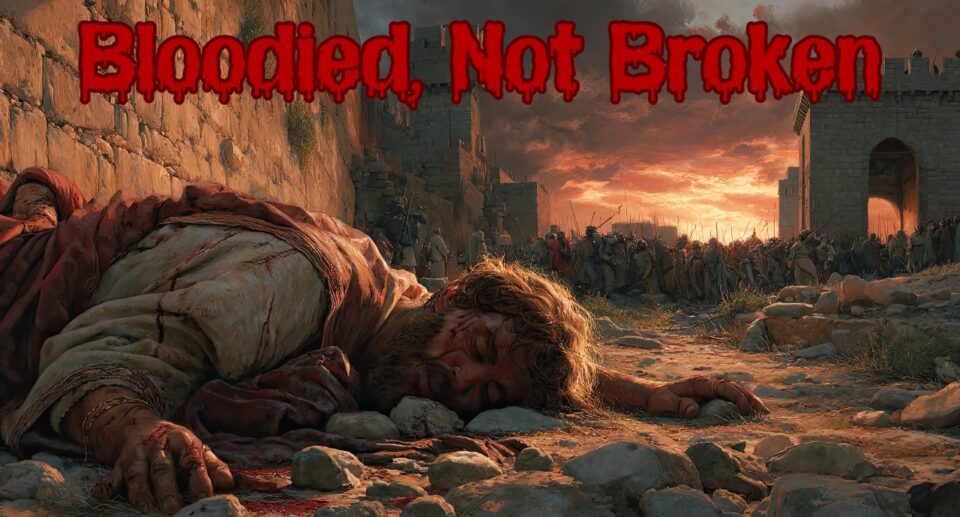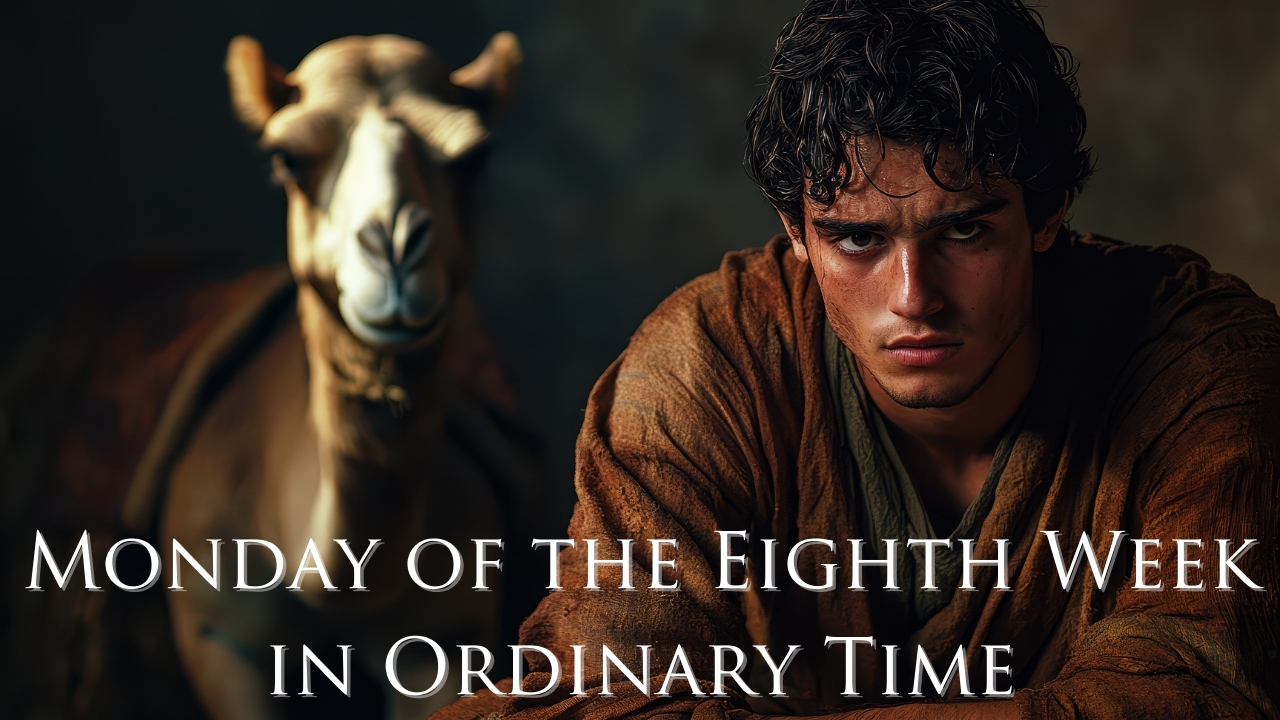When We Mistake the Holy: From False Names to True Dwelling | Daily Readings | May 19, 2025

May 19, 2025 – Daily Catholic Lectionary Readings for Monday of the Fifth Week of Easter.
Sometimes we encounter something holy and completely miss it. The people of Lystra witnessed a miracle and immediately tried to fit it into their existing religious framework – calling Paul and Barnabas by the names of their gods. But sincere worship directed at the wrong object cannot save. This reflection explores how we still rename divine action today and the profound alternative Jesus offers: not distant deities demanding sacrifice, but the living God making home within us.
This cinematic reflection explores:
- Why sincerity doesn’t equal truth in spiritual matters
- How cultural frameworks can blind us to divine revelation
- The link between authentic love and keeping Jesus’ word
- What it means for the Trinity to “make dwelling” within us
Readings: Acts 14:5-18; Psalm 115:1-2, 3-4, 15-16; John 14:21-26
Perfect for anyone questioning cultural spirituality, seeking authentic divine presence, or struggling with the gap between religious feelings and faithful obedience.
#DivineDwelling #SincerityVsTruth #LivingGod #MondayReflection #FifthWeekEaster
From Idols to the Living God: When Heaven Touches Earth
Sometimes, people encounter something holy… and completely miss it.
Paul and Barnabas had just done something beautiful: a man crippled from birth now stood on his feet, walking for the first time. The crowd watched it happen, felt the awe of it… and still got it wrong. They shouted that the gods had come down in human form. They called Barnabas Jupiter and Paul Mercury, not as insults, but as worship. They tried to honor what they saw. But they used the wrong names, the wrong story, the wrong framework.
Now here’s where it matters.
In some translations, those names are Jupiter and Mercury – the Roman gods. In others, they’re Zeus and Hermes – the Greek versions. But it’s more than a translation difference. Jupiter wasn’t just Zeus with a Latin name. The Romans had a whole different way of understanding divinity. Jupiter was a symbol of imperial order, authority, state religion. Zeus was wild, dominant, impulsive. Two very different ideas of what a god should be and neither of them reflected the truth.
The people saw power and immediately tried to interpret it through what they already knew through culture, not revelation. And Paul and Barnabas tore their garments in grief. Not because the people were hostile but because they were sincere… and completely wrong.
And that’s the warning. Sincerity doesn’t equal truth. You can be sincere, devoted, even worshipful… and still be offering that devotion to something that can’t save.
That mistake still happens today.
People see a miracle and call it energy. They feel God’s mercy and call it karma. They experience grace and give credit to “the universe.” They witness the divine and rename it something more manageable. Something that doesn’t require repentance.
But Paul and Barnabas don’t just correct the names, they call for conversion. They say, turn away from these vain things and toward the living God. The God who made everything. The God who didn’t stop doing good, even when people ignored Him. The one who sends rain, who fills hearts with food and gladness, who gives more than we deserve.
The psalm reinforces this contrast between true worship and empty devotion: “Not to us, O LORD, not to us, but to your name give glory.” The psalmist confronts the pagan mockery head-on: “Why should the pagans say, ‘Where is their God?'” The answer is defiant: “Our God is in heaven; whatever he wills, he does.” Unlike idols of “silver and gold, the handiwork of men,” the living God remains beyond human manipulation yet intimately involved with creation.
This living God blesses humanity in ways idols never could: “May you be blessed by the LORD, who made heaven and earth.” The Creator maintains sovereignty – “Heaven is the heaven of the LORD” – while sharing authority – “but the earth he has given to the children of men.” Divine transcendence and intimate involvement exist together.
And in the Gospel, that same God – not a myth, not an idea, not a force – says something even more personal. Jesus makes it clear: the ones who love Him are the ones who keep His word. Love isn’t about good intentions or warm feelings. It’s shown in obedience. In listening. In holding onto what He said, and living it.
And then comes the promise: the Father and the Son will come and make their dwelling with that person. Not a visit. Not a spiritual high. A dwelling. A home.
But not everyone wants that. Some would rather keep the image of God at a distance, inspiring but not interfering.
So Jesus makes another promise. The Holy Spirit, the Advocate, will come. And He won’t just teach from a distance. He will suggest what Jesus said, in real time. He will teach, guide, remind, correct. The Spirit will do for the believer what idols never could.
So here’s the question:
Is the heart open to that kind of dwelling? Or is it already filled with false gods, even modern ones dressed up as success, comfort, control, or spirituality without surrender?
The Advocate will teach. But not if the heart insists on staying in charge.
The miracle already happened. The truth was already revealed. The only thing left… is to call Him by His true name and let Him stay.






